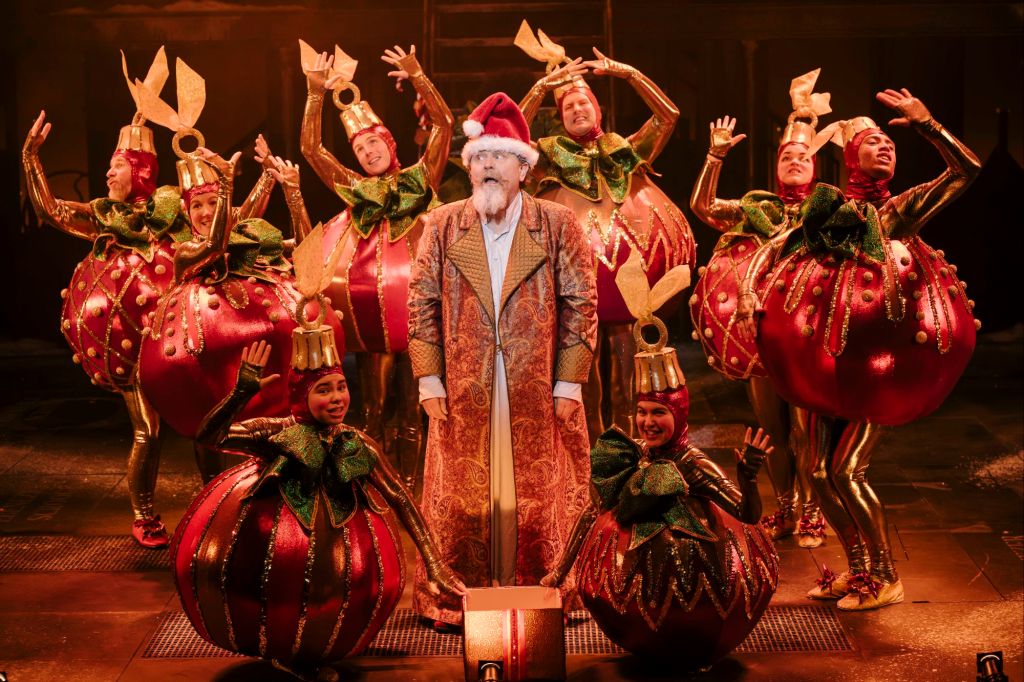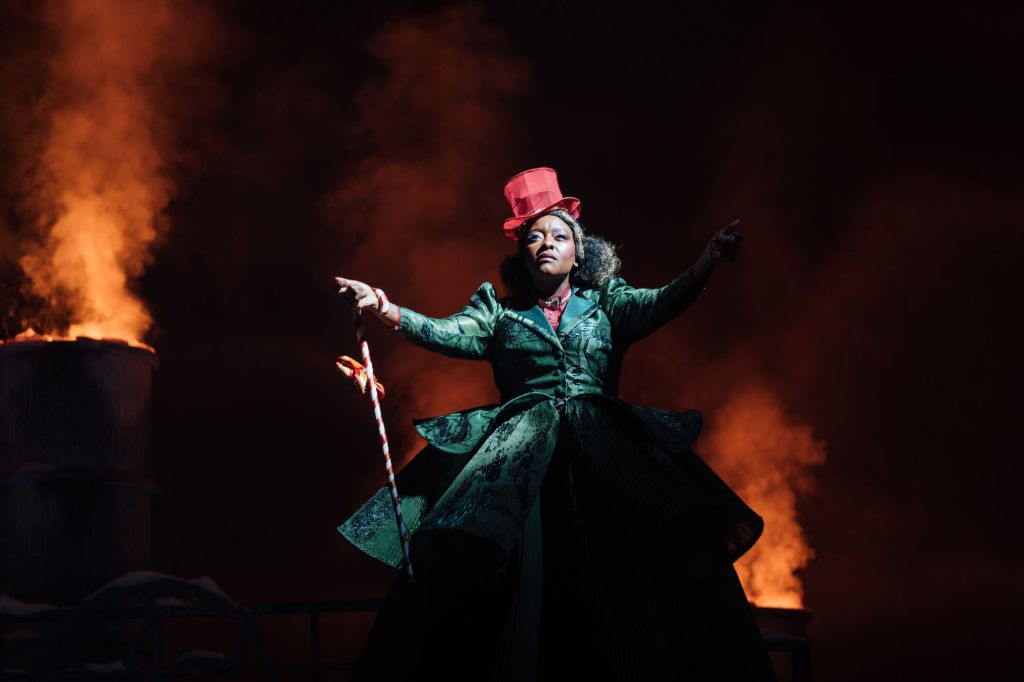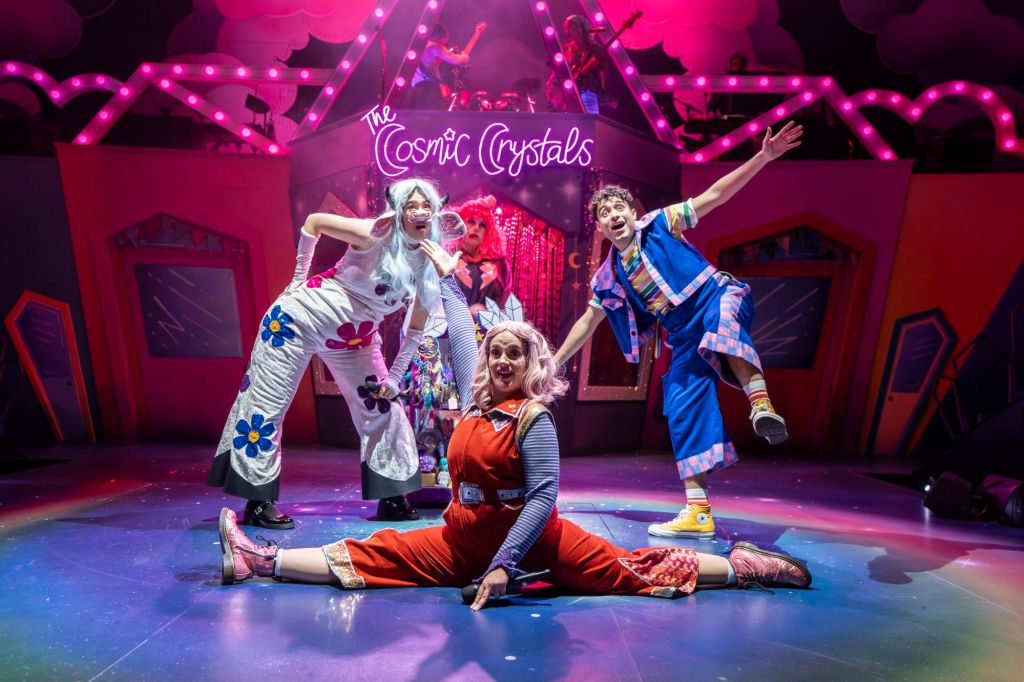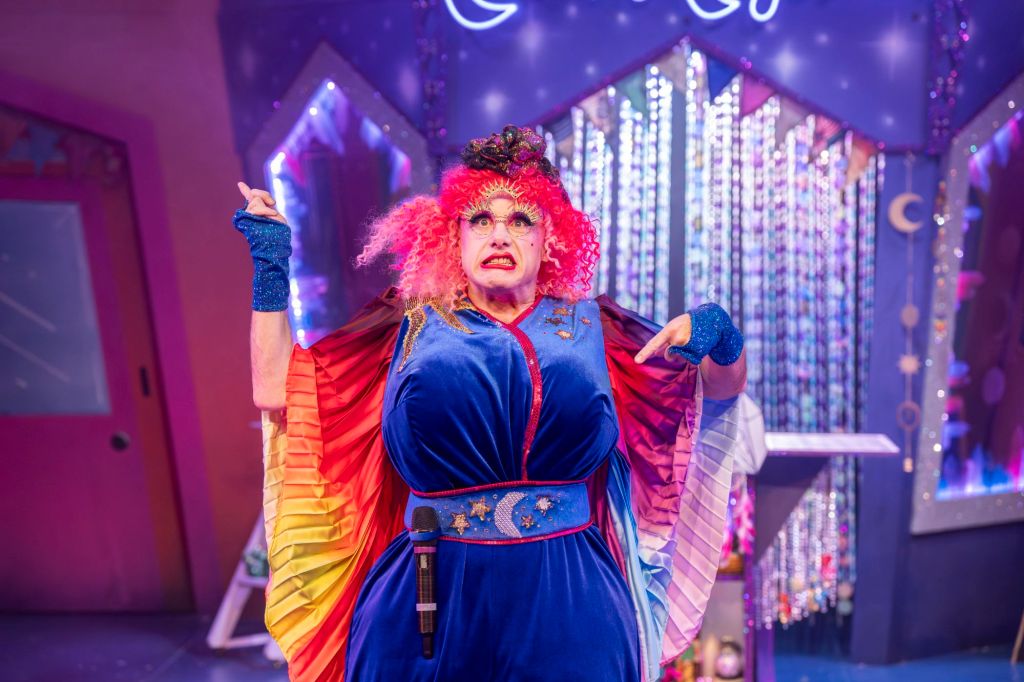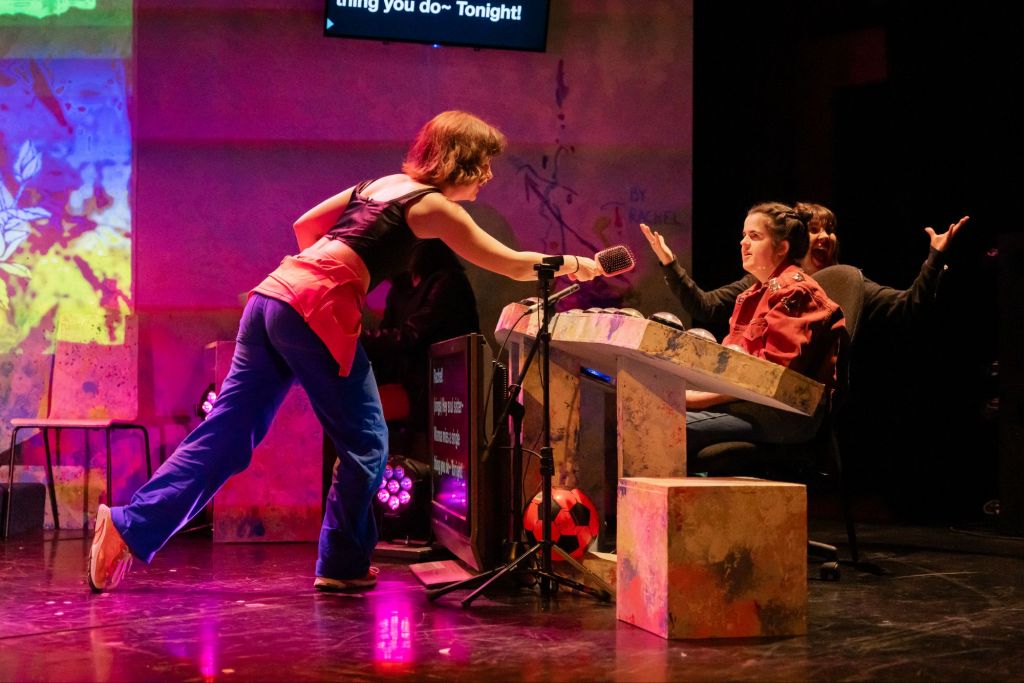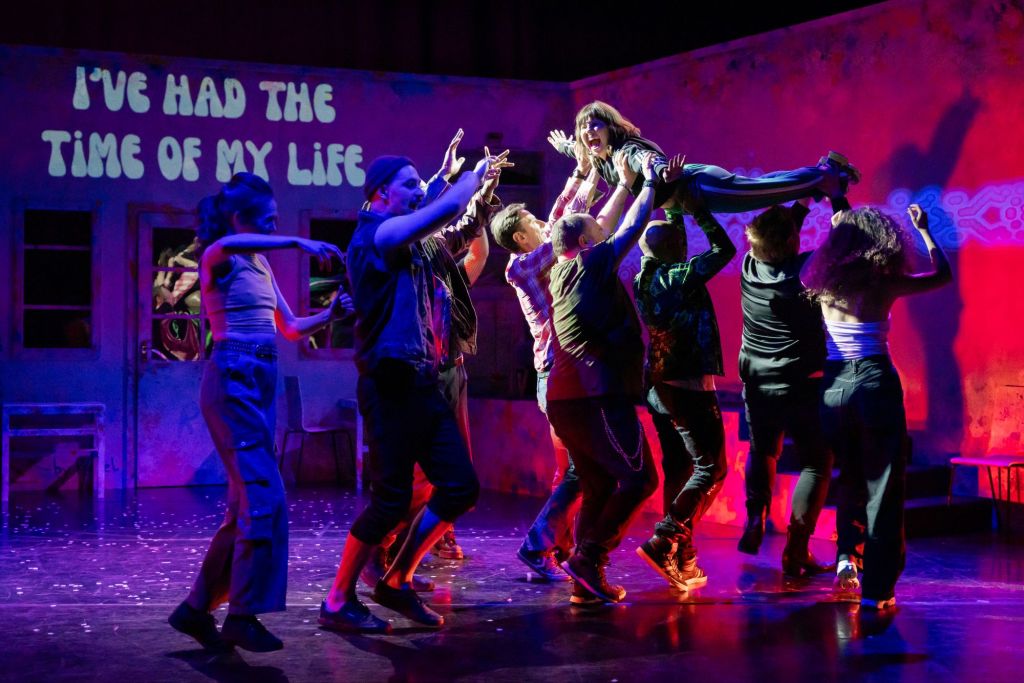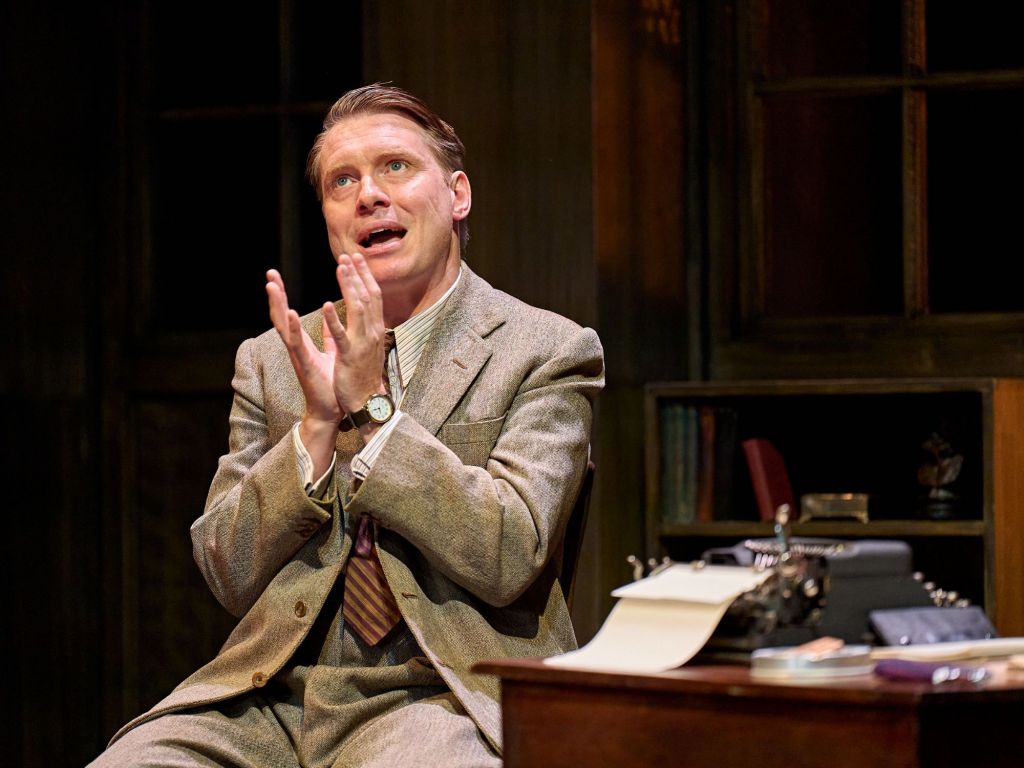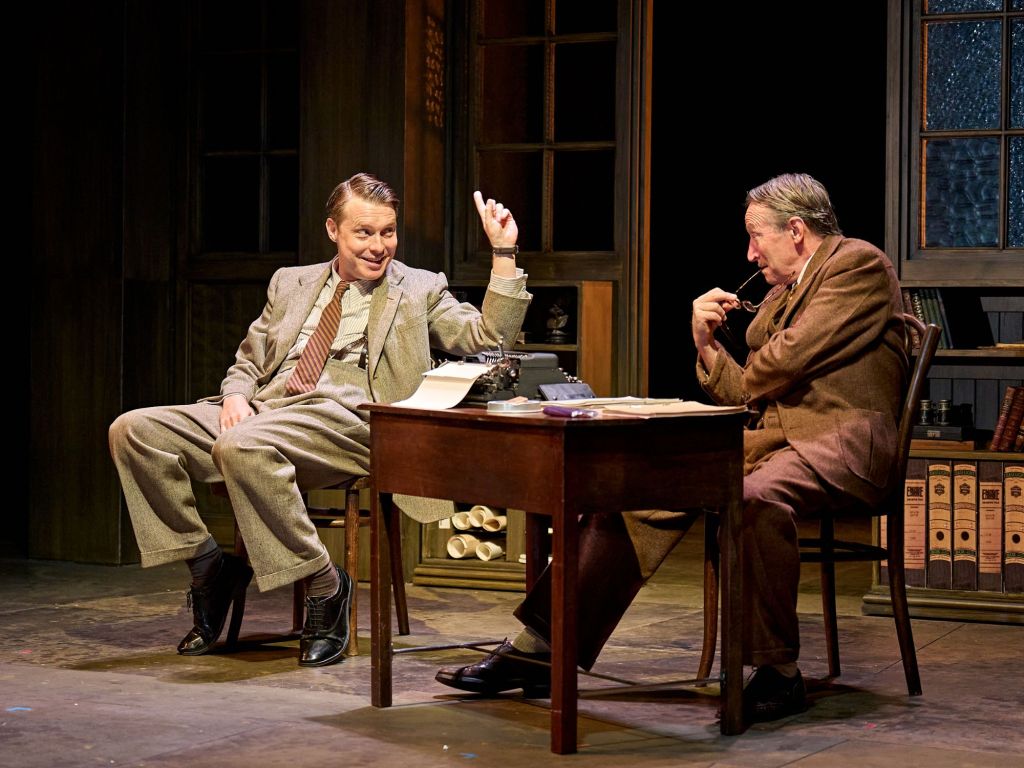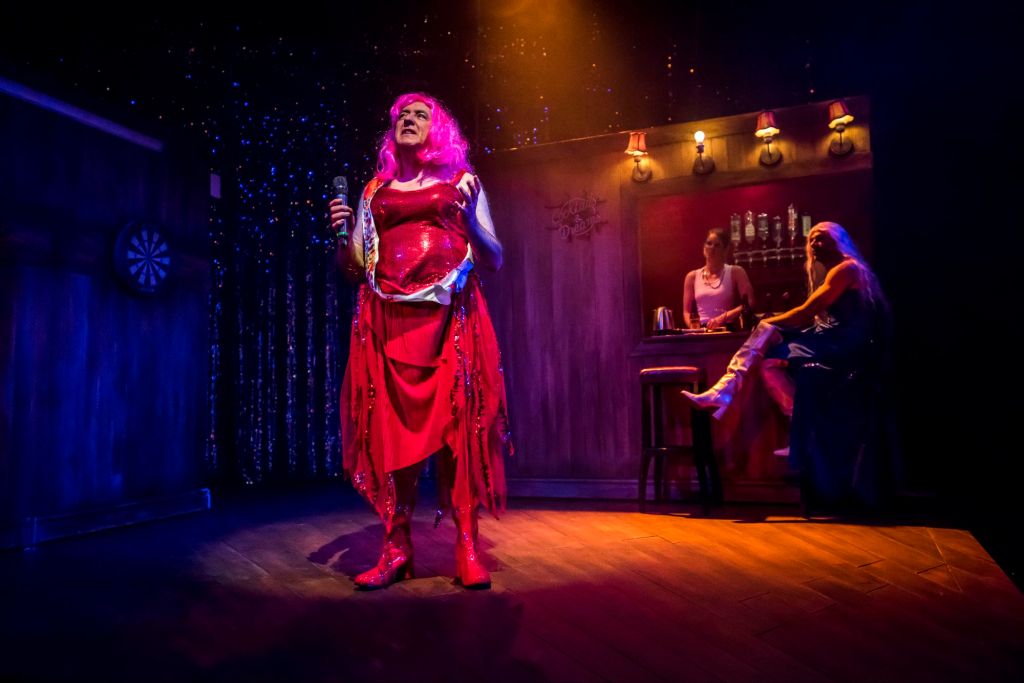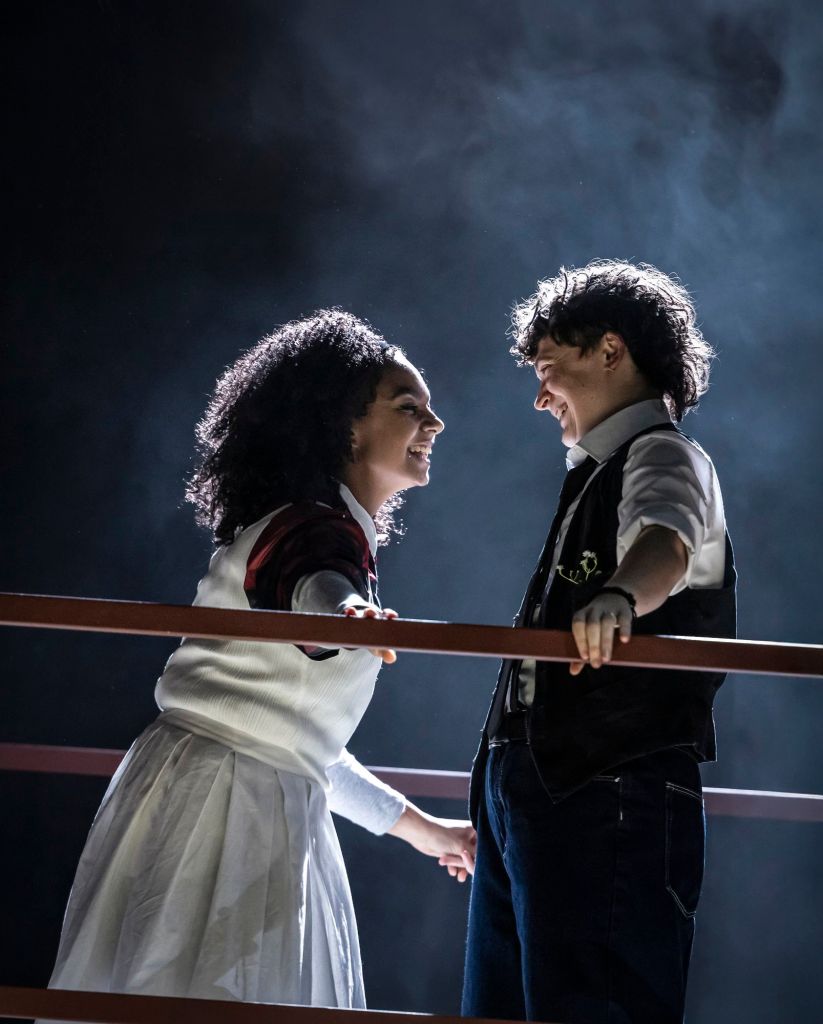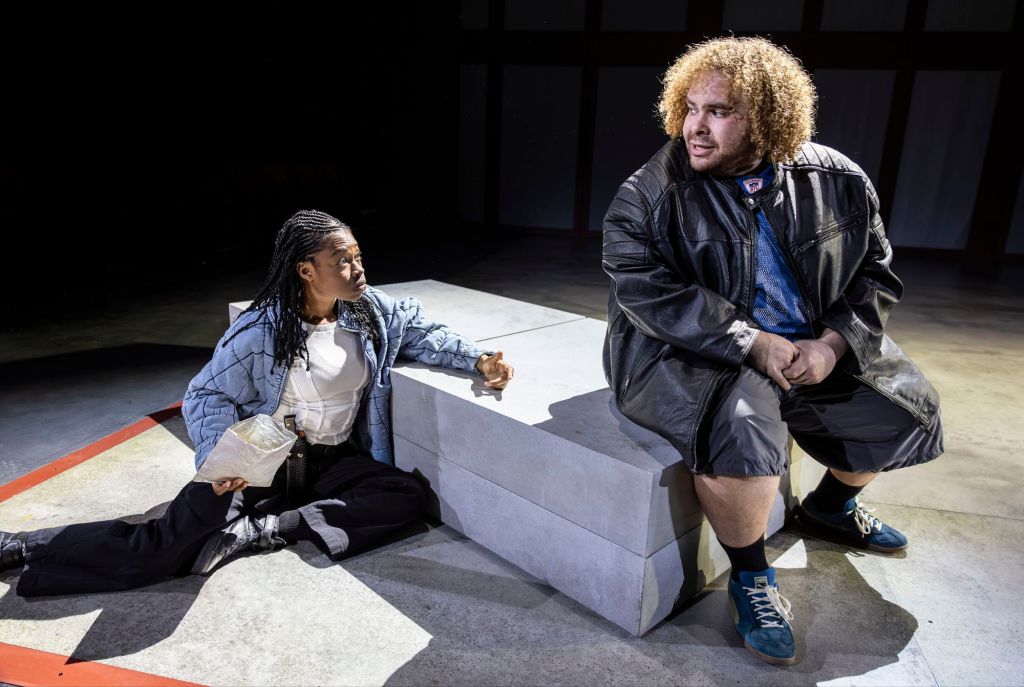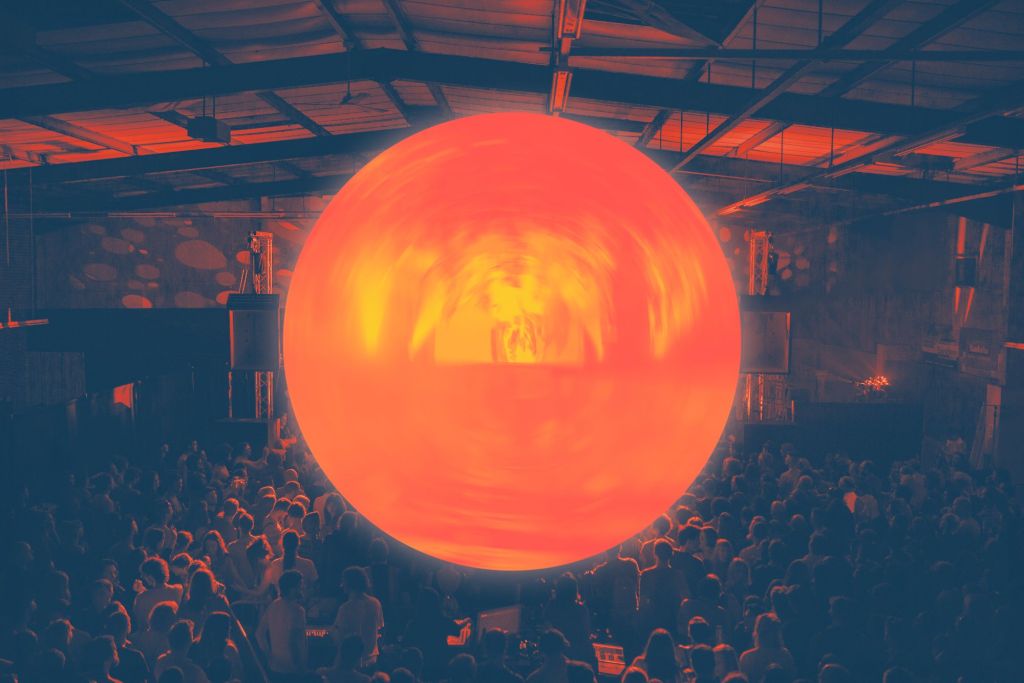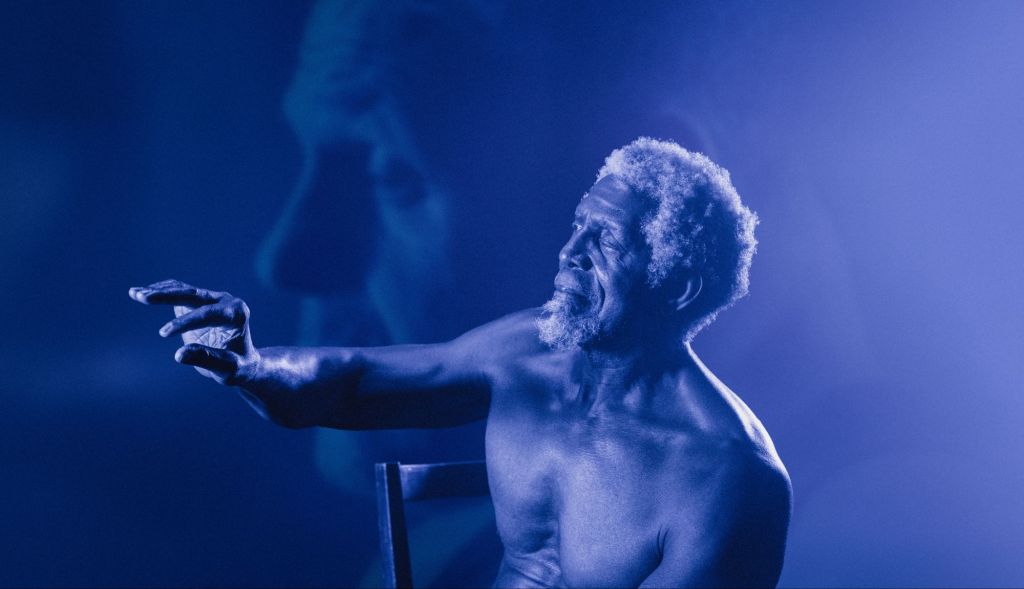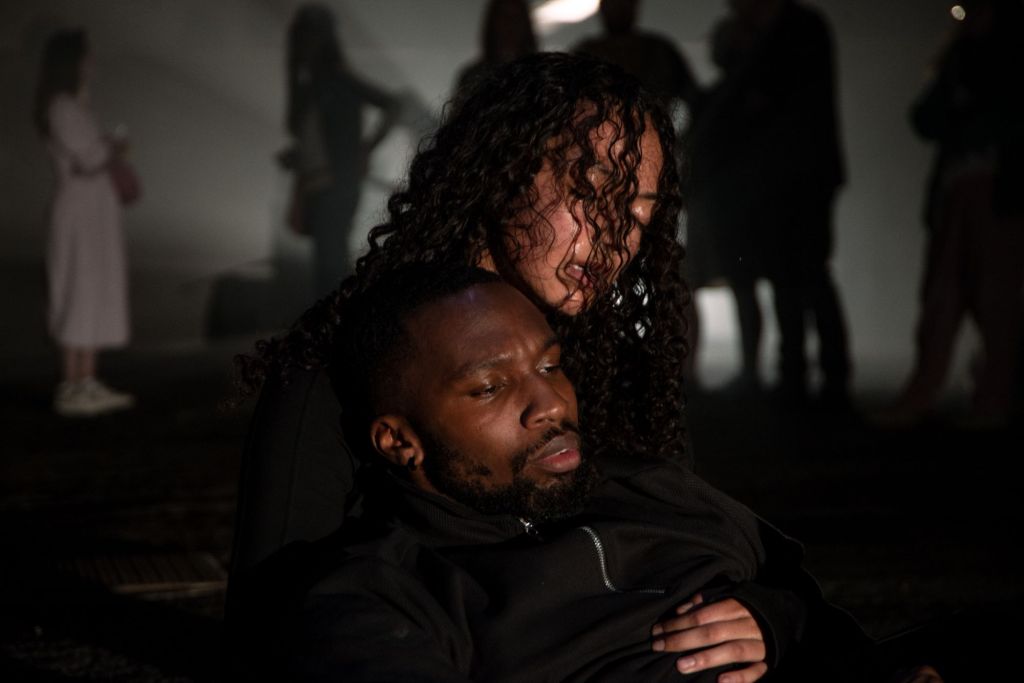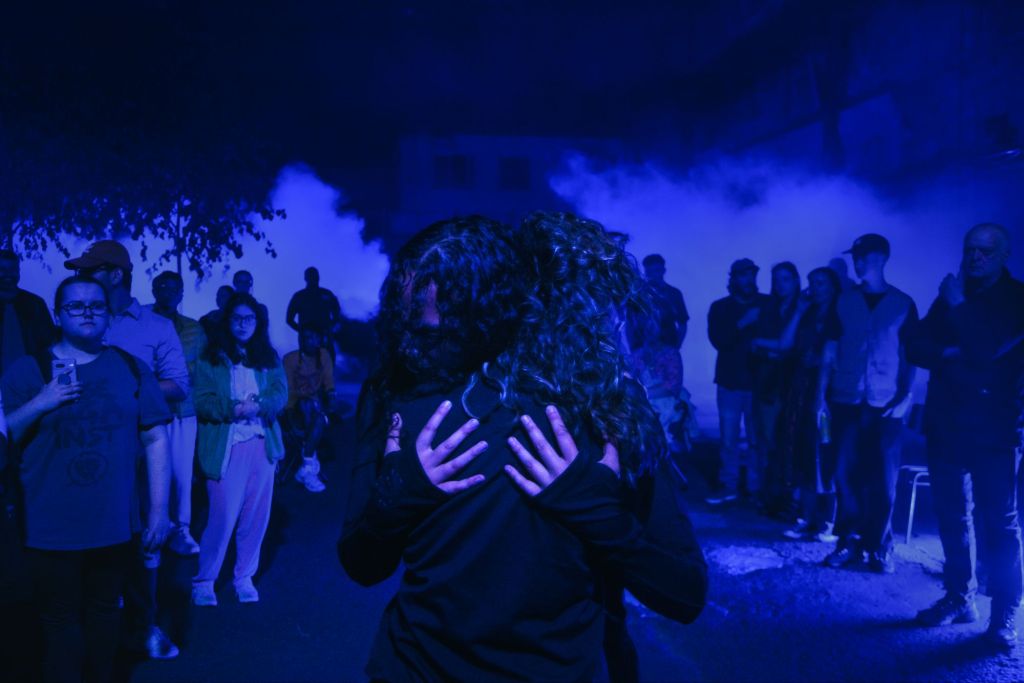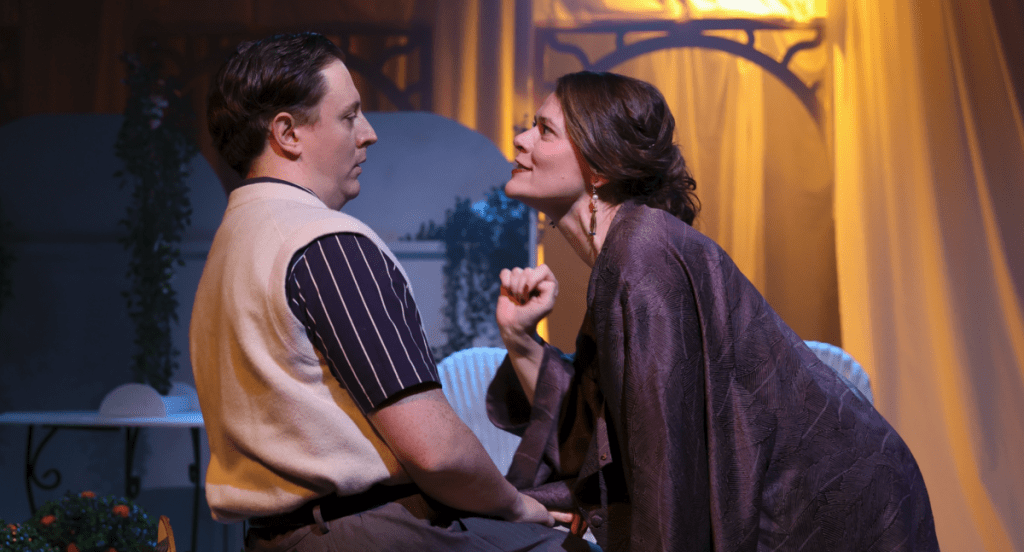
Written by Noel Coward
Directed by Amy Gavin
Hope Mill Theatre
HER Productions’ Private Lives at Hope Mill Theatre arrives fizzing with champagne wit and a sharpened feminist gaze, popping Noël Coward’s most famous divorce comedy like a well shaken cocktail. The result is brisk, intelligent and slyly subversive, a production that knows its Coward and is not afraid to raise an eyebrow at him.
Coward’s premise remains deliciously absurd. Divorced couple Elyot and Amanda, honeymooning with new spouses in the same hotel, discover that their shared history is as combustible as ever. Old sparks catch fire with hot temper and passion in equal measure. New marriages smoulder and combust. Doors slam, insults sparkle and love behaves badly…very badly indeed! Director Amy Gavin honours the play’s architecture while quietly rewiring its emotional circuitry. What once felt like a duel of egos becomes a study in mutual toxicity and mutual addiction, with both leads given equal agency and equal blame.
The performances crackle. Hannah Ellis Ryan’s Amanda is played with steel wrapped in silk, her wit deployed like a rapier but her vulnerability allowed to show in fleeting, telling pauses. Charlie Nobel as Elyot is all louche charm and boyish petulance, is less the romantic rake and more the emotional arsonist who cannot resist striking the match. Their chemistry is thrilling and alarming in equal measure, the kind that makes you laugh uncomfortably even as you recognise the warning signs of ensuing violence. Coward’s dialogue mainly lands cleanly, every barb sharpened, every epigram delivered with precision rather than reverence.
The supporting roles are more than polite foils. Victor and Sibyl, often reduced to comic casualties, are given texture and dignity here. Hope Yolande certainly has fun with her role and perhaps relies too much on comedic expressions but is suitably fiery when required. Jack Elliot who was so good in the recent Mojo at The Kings Arms plays another blinder with his portrayal of the hapless Victor. Their bafflement and hurt play as genuinely human responses to a situation that would be intolerable offstage. This grounding choice is key to the production’s bite. It stops the play floating away on its own cleverness and anchors it firmly in emotional consequence.
Direction is confident and pacey, letting Coward’s language breathe while refusing to let the play dawdle. The famous physical comedy in the Paris flat scene is staged with balletic control, violence and flirtation blurring in a way that feels deliberately uncomfortable. It is funny, yes, but it also asks the audience to sit with the uglier implications of romanticising chaos. The use of black and white film is a nice touch but risks being overused. As with their recent production of The Taming of The Shrew music is used to change pace and disarm as quicksilver moods shift from playful fun to violent extremes.
In Hope Mill’s intimate space, Private Lives feels immediate and faintly dangerous, like eavesdropping on a very glamorous argument next door. HER Productions deliver a revival that respects Coward’s wit while interrogating his politics, proving that this 1930s classic still has teeth. You leave laughing at the cruelty of fickle fate while wincing and quietly relieved that some passions are best admired from the safety of the stalls.
Hope Mill Theatre Jan 28th – 8th February. Dukes Theatre, Lancaster 24th- 28th February 2026


